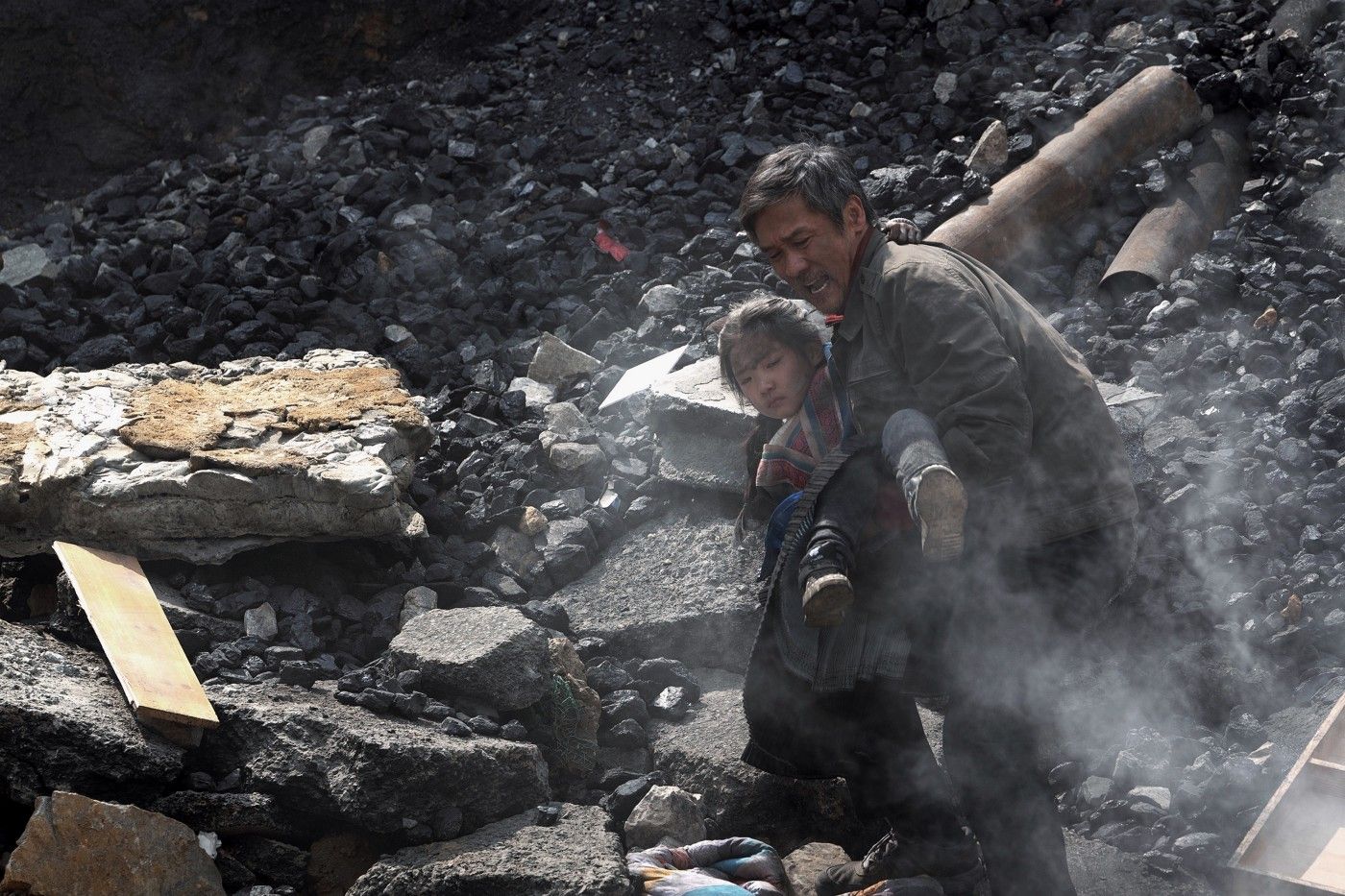Cloudy Mountain (Li Jun, 2021)

The big hit of this past Mid-Autumn Festival season on Chinese screens was Cloudy Mountain, the latest in a series of disaster films that double as propaganda pieces that praise the resourcefulness of the Chinese people and bureaucracy (not necessarily in that order) in responding to the cataclysmic side effects of economic growth. A cast of TV stars and actors familiar from the other primary strain of contemporary Chinese propaganda cinema (historical-military epics) faces a series of natural disasters that may be caused by the drilling of a high-speed train tunnel through a mountain. At the epicenter (so to speak) of the drama are a father and son pair: the dad is a former “rail soldier”, the branch of the PLA that built huge infrastructure projects (bridges, tunnels, highways, etc) across China; the son is some kind of engineer or seismologist or something, who uses drones and computers and stuff to help build big things for the corporation that is the successor to the old rail soldier organization. The drama basically follows two tracks: a literal family melodrama about a distant father reconciling with his son over a shared trauma and guilt involving the mother/wife figure and a metaphorical statement about the continuity of the revolutionary past with the technocratic present. The ultimate value in both cases is personal sacrifice for the collective good.
Cloudy Mountain, then, is essentially a terrestrial, lower-budget, less imaginative variation on The Wandering Earth, the massive hit sci-fi film from 2019. Its best sequences come in the beginning, with the first earthquakes and landslides trapping people underground, along with a desperate chase in which the hero dodges falling boulders and crumbling roads in his truck, all while doing science stuff on his laptop. The effects work is really good by the standards of recent Mainland cinema, with well-realized environments and plausible dangers. Like many a disaster film on both sides of the Pacific, the film is best when it is focused on procedure, on specific problems and the solutions to them that the heroes must plan and put into action. Andrew Lam’s recent The Captain was terrific at this, nodding perfunctorily at the more personal dramas of its characters in favor of spectacle. Cloudy Mountain loses balance in its second half, abandoning the sense of adventure for a series of inspiring speeches (about the uniquely Chinese ways of solving disasters) and tearful bonding (between father and son, son and girlfriend, girlfriend and boss, girlfriend and inexplicably lost gang of children, boss and other boss, etc etc).
More interesting is what this mini-cycle of propaganda disaster films say about China’s ambivalence towards its own economic development. The old man gets in an argument with a distracted clerk because he only carries cash and can’t pay for things with his phone. He doesn’t understand the science behind their various tasks, but has a wealth of practical experience that ultimately saves dozens if not hundreds of lives. It’s unclear what exactly is causing the various disasters, or if there’s any one cause: the karst rock formations of that region of China, porously allowing water in are partly to blame, but also the movements of the Indian continental plate which cause an earthquake (a foreign influence?), and a torrential rainstorm. They ultimately save the day by blowing up a hill, which shields the nearby city (and also the rail tunnel they’ve spent ten years building) from the collapse of a larger mountain. So, in order to save the Chinese people, the government has to destroy what is small (a hill) and weak (porous, soft) in China, otherwise the whole will be devastated by foreign pressure (the Indian plate). And the rain is, I don’t know, Western media on the internet or something. Only collective action can prevent disaster: the technocratic bureaucracy, both corporate and governmental, working hand in hand just as the generations (father and son) must, each side working not for their own success, but rather being ready at all times to sacrifice their self (their ego, their work, their life) for the sake of the whole.
